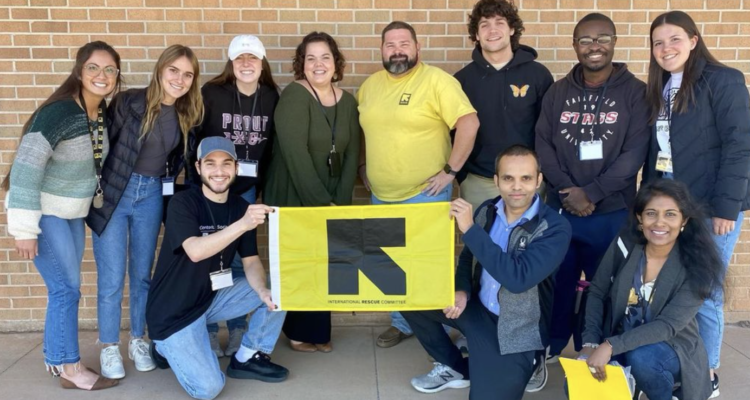Over Spring Break, members of Fairfield University’s Humanitarian Action Club traveled to Abilene, Texas, as they partnered with the International Rescue Committee (IRC) in assisting refugees who have recently arrived in the United States.
The International Rescue Committee is an non-governmental organization that aims to assist refugee children suffering in the wake of a humanitarian crisis in their home country. Children in the program range from ages six to 20. This necessitates a variety of services to deal with a wide range of needs.
A fundamental element of the services provided by IRC focuses on education, school support and assisting children in learning English to better assimilate them into the United States. Fairfield students and faculty participated in the Spring Break camp which entailed not only educational services but also extra-curricular offerings including taking children on museum visits, college tours and sporting events. Many of these are activities to which the children had never been exposed.
As encapsulated by Fairfield chaperone Sabnam Ghosh, “working with them (the children) reminded us that we were surrounded by a number of global instabilities and problems that we do not have to face on a pervasive level in our daily lives.”
Sabnam explains that the health and wellbeing of the children in JRS are dependent on the care of staff and volunteer workers, and it is both “an honor and a grave responsibility” to uphold the safety of the children and be empathetic to their individual needs and concerns.
Humanitarian Action fellow Bobby Schattle ‘25 reflects that “the trip to Abilene proved extremely informative both for myself, our group and the IRC.”
Schattle notes that the children with whom Fairfield volunteers engaged were full of energy, funny and enthusiastic about engaging with staff and growing in their understanding of various aspects of American culture and the English language.
The majority of children at JRC have emigrated from the Democratic Republic of the Congo and Zimbabwe. Despite many of the childrens’ primary language being Swahili, volunteers felt little to no impasse by the language barrier; rather, JRS community-building work encouraged engagement and friendship that bridged both cultural and linguistic lines.
Chaperone Danushka Bandara felt a special connection to the mission at IRC as he drew connections between working with the refugee children in Abilene and his work with refugees in his native Sri Lanka as he says, “having worked with refugees before in my home country, I felt I could use my own experience to contribute to the trip’s success.”
Students and staff have collectively echoed how their work with the children enabled them to fully realize the extent of the security and safety in their own lives as they have noted the childrens’ reality which is tainted by chronic instability and crisis. Authentically listening and learning from the children is one of the most important aspects of volunteer work at JRS, and Fairfield students were able to offer assistance both in meeting the children’s practical needs as well as their emotional and mental health yearnings to ensure that their experience at JRS is one of holistic growth and integration into the broader community.
In the aftermath of the trip, Fairfield students and staff have noticed how resonating of an experience their work with JRS has proved to be.
First-Year student Kevin Camy notes that volunteering at JRS or a similar refugee assistance organization is “an experience that everyone should take advantage of, and the opportunity to connect with the people allowed him to challenge many preconceived notions and implicit prejudices.”
As reflective of the broader mission of Fairfield University’s Humanitarian Action Club, proactive discussion and firsthand learning from the JRS trip helps to further the club’s goal to raise awareness about myriad social and humanitarian issues that reside both in international communities and within the United States itself.


Leave a Reply